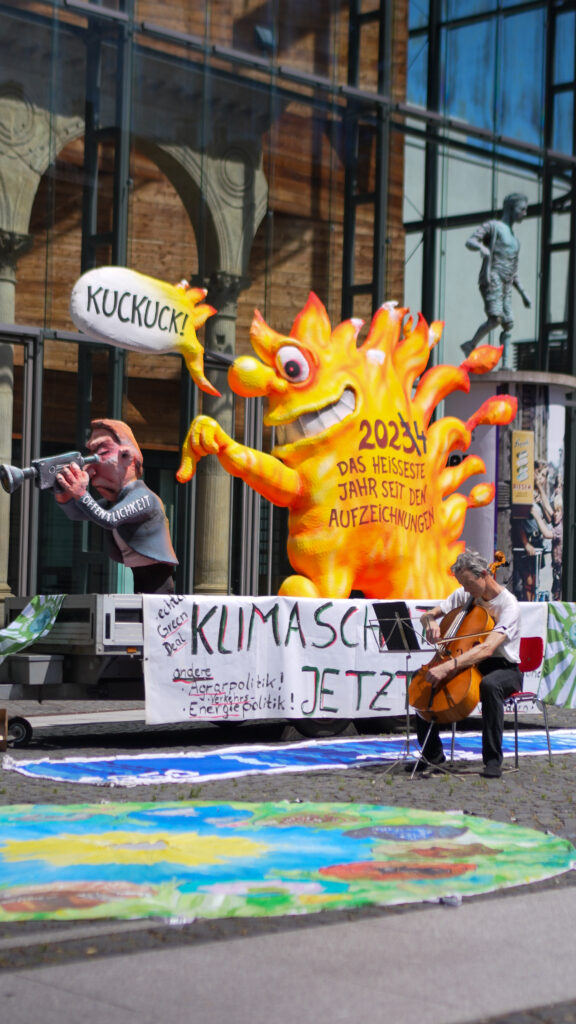How do we keep care and solidarity at the heart of COP30?
As the COP process grows, so too does its complexity. Each year, more activists, negotiators, civil society groups, and private stakeholders join the negotiations. This has made the space more dynamic, but also more difficult to navigate and build lasting power within. A number of questions endure: How do we maintain a culture of collaboration and solidarity when the scale is expanding so rapidly? How do we ensure that the local realities most critical to understanding the climate crisis remain at the center of the conversation? And, how do we build power in ways that are people-centered, equitable, and also effective?
These questions are especially pressing as we look ahead to COP30 in Belém, Brazil, where nearly 90,000 people are expected to gather in November for two weeks of negotiations. However, the outcomes of that convening are shaped by the many dialogues, activations, forums, and negotiations that take place throughout the year. These pre-COP spaces create the foundation for the high-level decisions we see in November. One such event is the UNFCCC’s annual summer meetings – the Subsidiary Bodies (SBs) – in Bonn, Germany. These summer negotiations determine the agenda for COP and this year, Icarus Complex Magazine partnered with the Entertainment + Culture Pavilion to host the Culture x Climate Forum at the LVR-LandesMuseum. The Forum brought together artists, storytellers, activists, and negotiators to highlight the role of culture in shaping climate action. Supported by the City of Bonn as part of the Summer of Change festival, it extended climate conversations beyond policy rooms and into the public imagination. It was here that Icarus Complex launched our new series, On the Dynamics of Scale with the aim of interrogating the various forms of power that are leveraged at different scales of climate action.
Our session explored how power is built from the ground up – through trust, solidarity, and care in community organising – and how these forms of power ripple outward to influence institutional change. The workshop was facilitated by Yatou Sallah, Digital Editor at Icarus Complex, alongside speakers: Farhana Yamin, an internationally celebrated climate lawyer, activist, and key architect of the Paris Agreement; and Pimpichcha Sillivan-Tailyour, a climate justice organiser with the Bonn Climate Camp – a collective that creates space for grassroots resistance and solidarity around the UNFCCC negotiations.
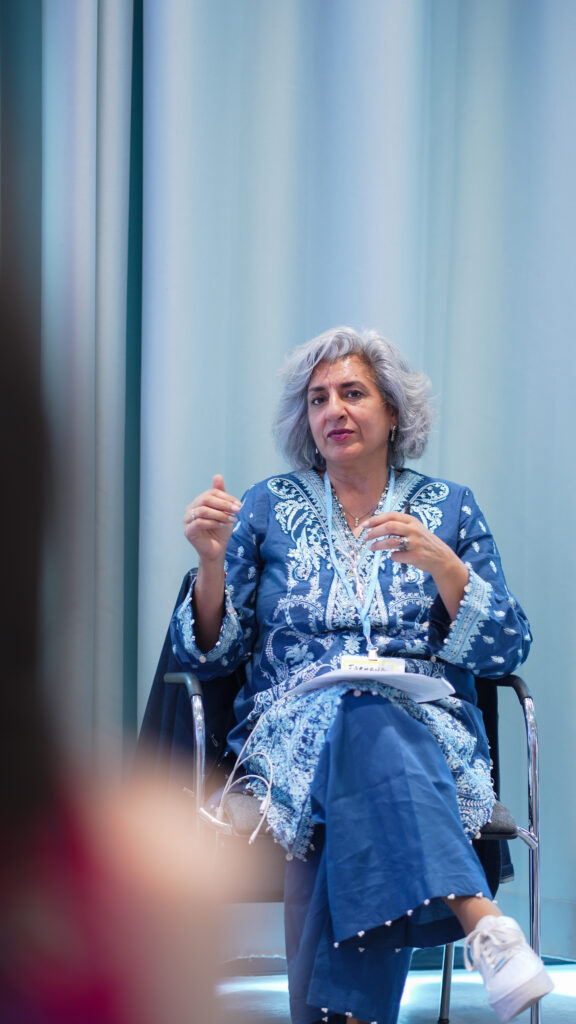
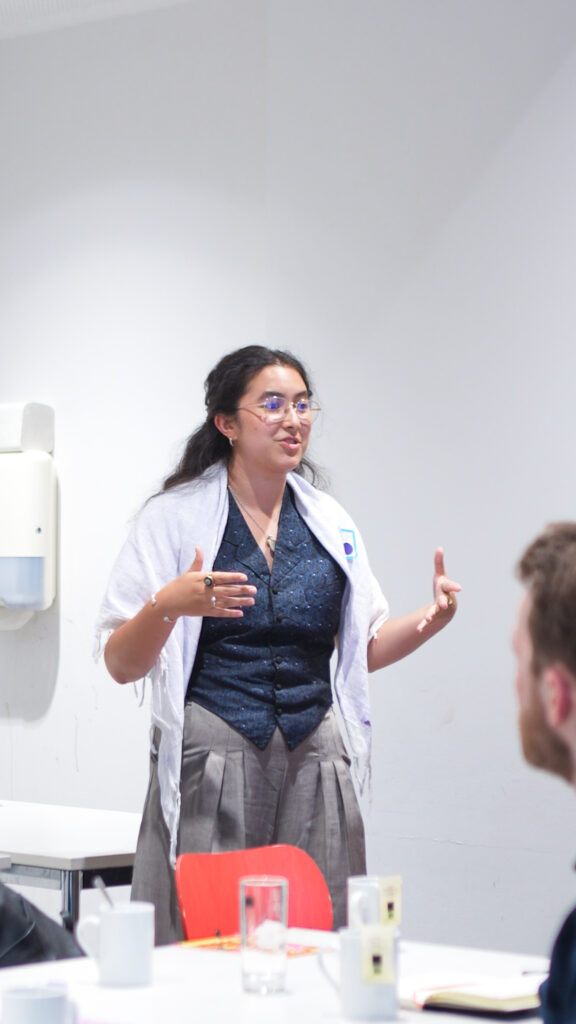
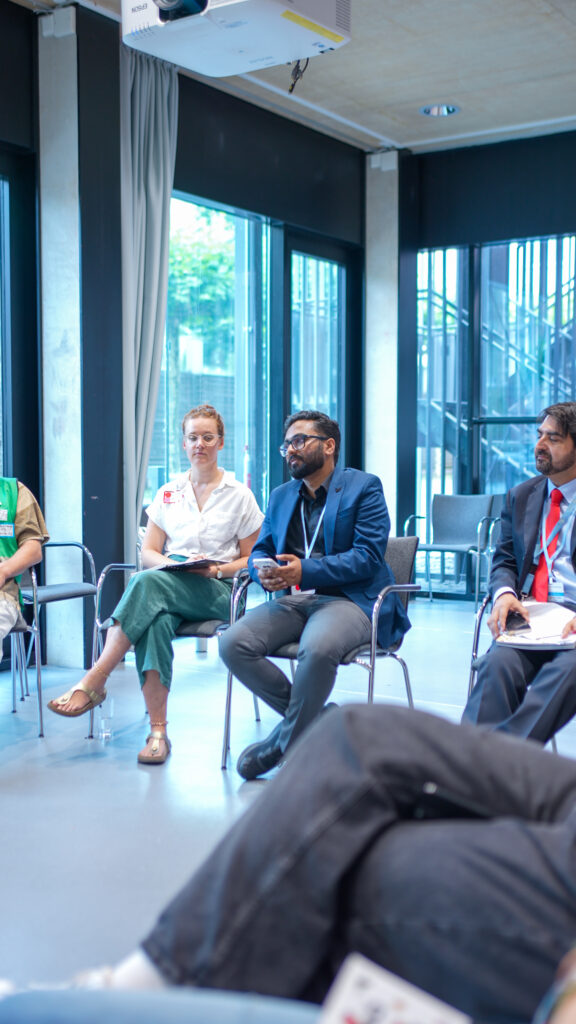
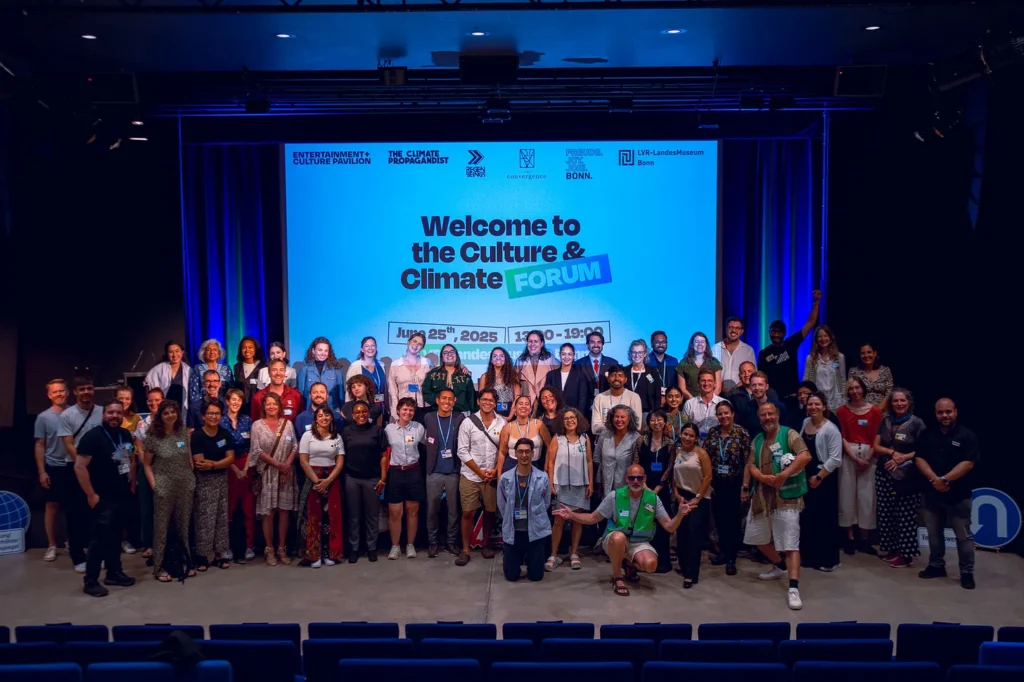
Participants – including youth negotiators, UNFCCC representatives, grassroots organisers, and policy analysts – brought layered perspectives on how power is constructed and contested in climate spaces.
The discussion revolved around a number of prompts, including: What does community organising mean to you? Which forms of power are most essential in climate action? And, how do we translate solidarity into strategic action?
Farhana, a veteran COP negotiator of nearly 40 years, reflected that her understanding of organising has shifted over time, saying, “I’ve come to see organising as less about driving people toward a fixed goal and more about creating space for emergence. It means letting people move at their own pace, really listening to what they need, and holding those needs with care.”
For Pim, organising is about staying grounded in shared purpose. As she explained, “For me, organising means rooting ourselves in each other and in our shared purpose – staying grounded rather than being swayed by external pressures like visibility or branding. At the Bonn Climate Camp, that has meant holding one another accountable and building a community of care that extends into the wider climate movement.”
“Organising means rooting ourselves in each other and in our shared purpose – staying grounded rather than being swayed by external pressures like visibility or branding.”
Participants emphasised that community organising enables movements to build collective power grounded in relationships and solidarity, and when sustained, this power reverberates across scales in climate negotiations. Within the formal process, Farhana described the unique role of relational power in fostering transnational alliances between delegations who, in theory, would otherwise be negotiating against each other.
Outside the negotiation rooms, localised disruptive action drives narrative and makes public demands for accountability, particularly when institutions fail to deliver justice. Pim noted that the Bonn Climate Camp plays a crucial role in enabling this kind of activism, explaining: “During the SB’s most of the protests and actions that we’ve seen have been supported by us in terms of resources, getting the right people matched up, getting transport of resources to the location, getting registration to the German government for physical spaces so that activists are safe.”
Additionally, addressing grief, burnout, and wellbeing was also recognised as integral to sustaining activism. Following an intimate discussion about the pain and exhaustion that often accompany climate advocacy work, participants highlighted the need for spaces where people can share emotions openly rather than being forced into silence and productivity.
“For negotiators – many of whom carry grief, rage, and exhaustion while representing their communities – culture, art, and creativity can provide a sense of home far from home, and a way to hold those emotions beyond just the technical demands of negotiation.”
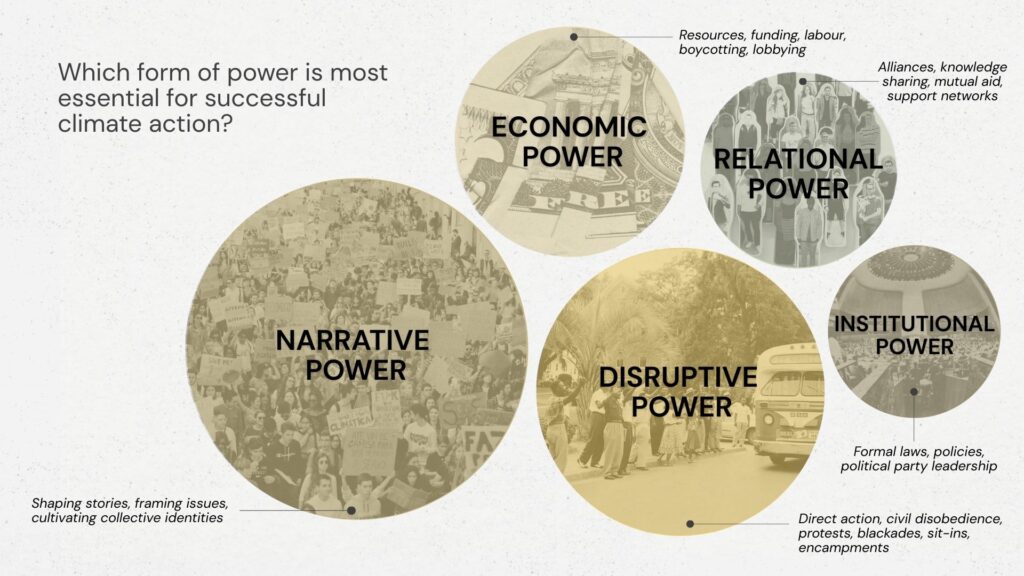
Similarly, alternative spaces such as camps, cultural forums, and artistic interventions were seen as essential to sustaining collective imagination and resilience. Farhana, who has become increasingly focused on supporting arts and cultural activations through curation and funding with the Climate Justice and Just Transition Donor Collaborative, described how culture can support even those within formal processes. She shared, “For negotiators – many of whom carry grief, rage, and exhaustion while representing their communities – culture, art, and creativity can provide a sense of home far from home, and a way to hold those emotions beyond just the technical demands of negotiation.”
Across the session’s surveys and group discussions, one consensus emerged: narrative power is the most essential form of power for successful climate action. This insight resonates deeply with the work we do at Icarus Complex, as we recognise how reporting itself contributes to the narrative power wielded by activists and negotiators grounded in local struggles. Storytelling that reflects the global systemic underpinnings of diverse local realities offers a glimpse into the expansive possibilities for building solidarity across regions. With clear and accessible language, each local story becomes part of a broader picture of accountability, urgent action, and imagination.
So what does this mean for COP30, and for culture?
It means recognising that while the success of the COP process is often measured by its large scale, true power often begins small – through relationships of care and solidarity, and the narratives that emerge through this action. Narrative is the connective tissue that enables local struggles to resonate globally. Furthermore, cultural activations offer room for stories to heal and humanise, ensuring that voices of justice and resilience are not drowned out by the machinery of high scale negotiation. As Belém prepares to host COP30, culture can act as a bridge: bringing frontline knowledge into global spaces, sustaining solidarity across geographies, and challenging top-down defaults with people-centered approaches.
If we are to meet the challenges of this moment, we must ensure that the dynamics of scale do not eclipse the beating heart of climate action: communities building power in solidarity with one another, and imaginative stories that expand the possibilities of the demands we make for the future.
On the Dynamics of Scale is a recurring event by Icarus Complex Magazine. Through panel discussions and hands-on workshops we take a systems approach to identifying the implications of “scale” in effective climate action.
Want to host an event with us? Send us an email at info@icaruscomplexmagazine.com
